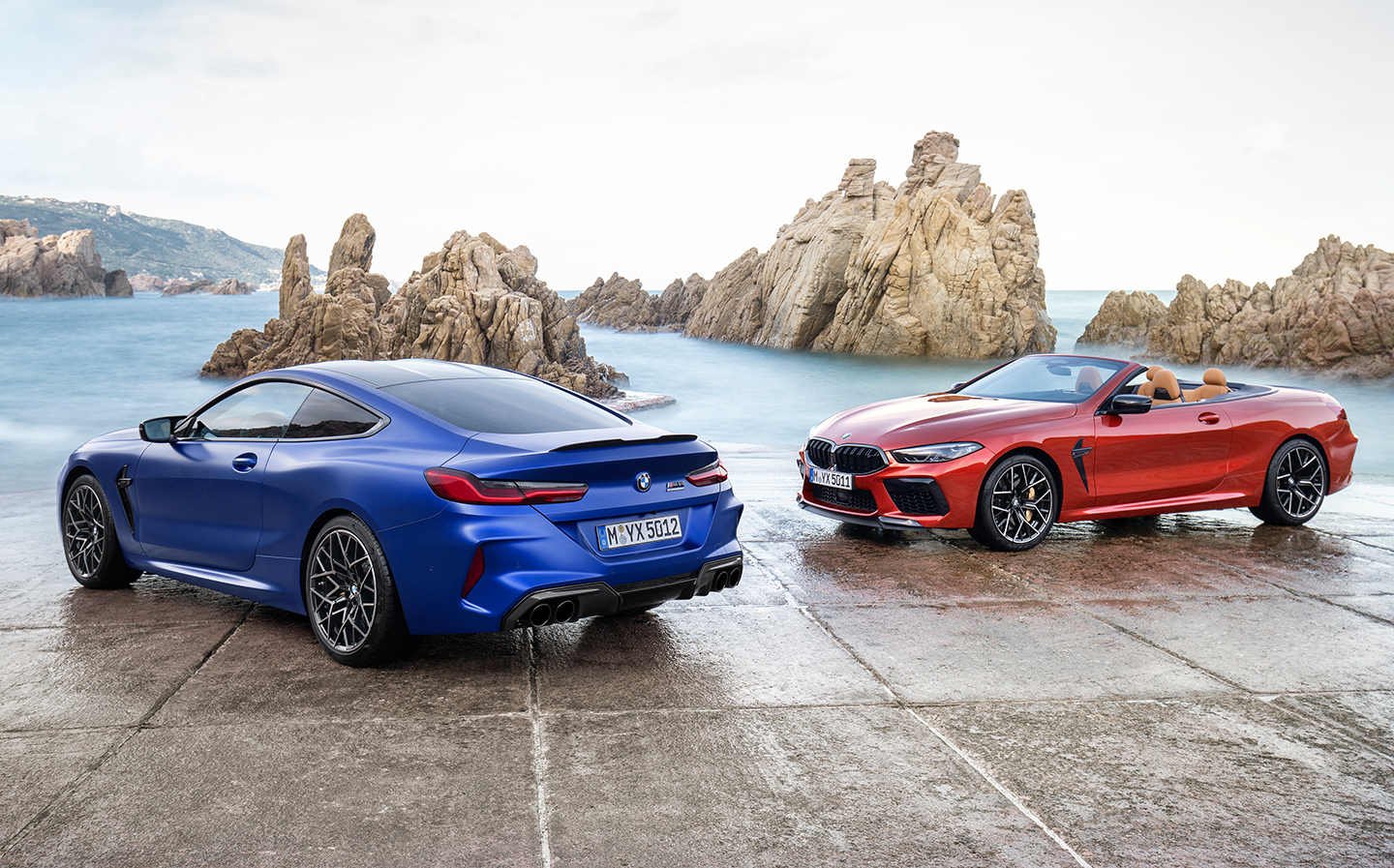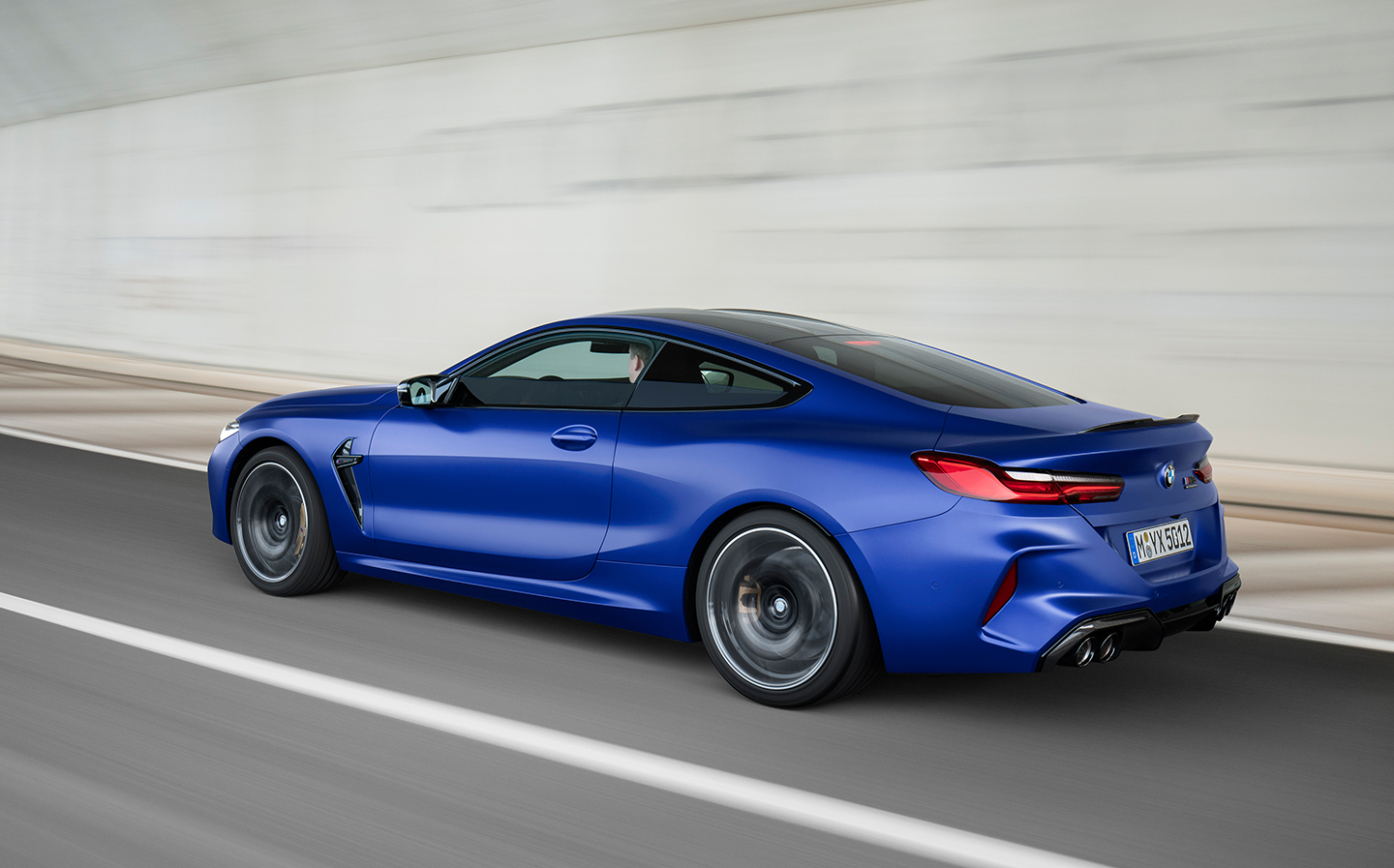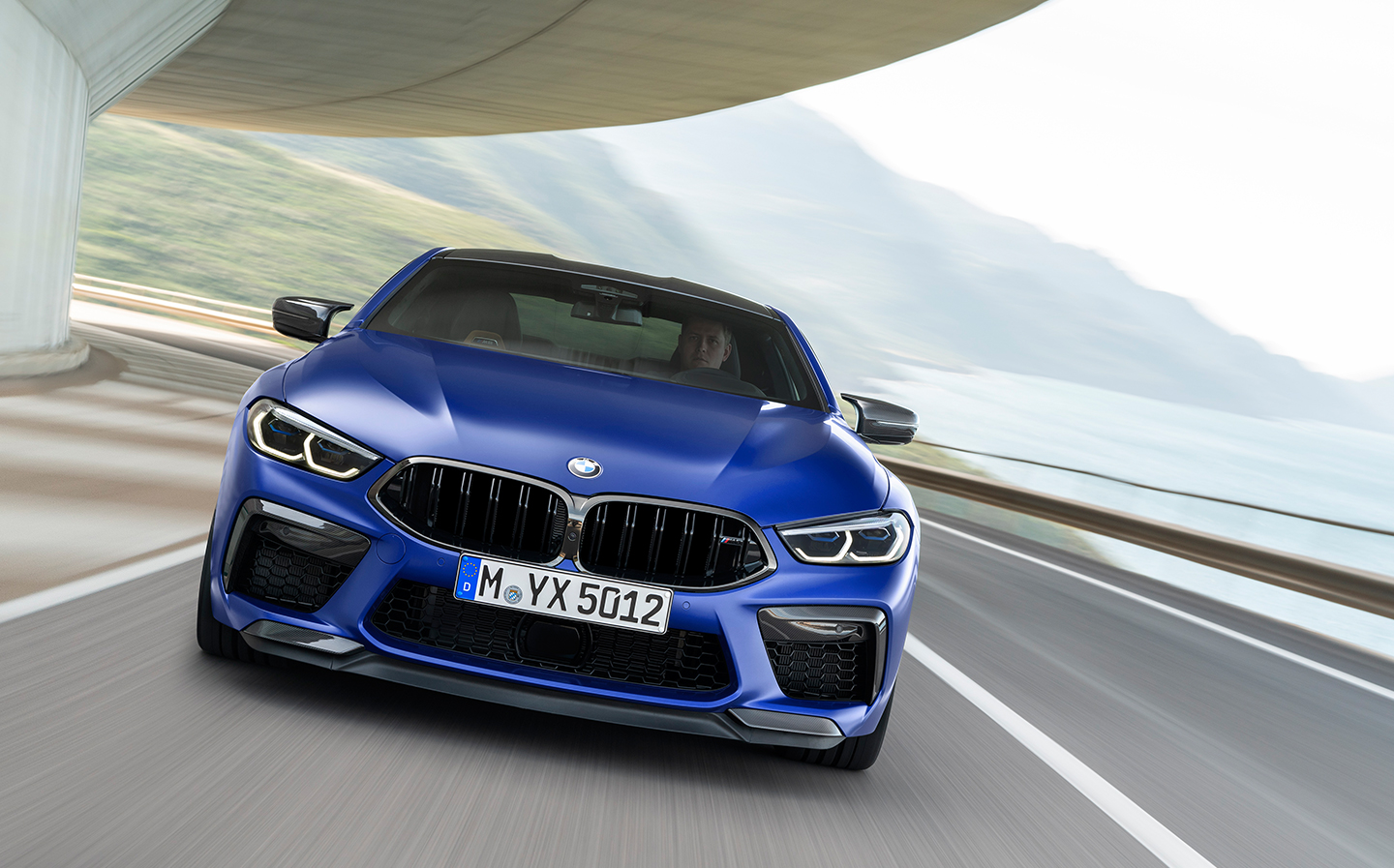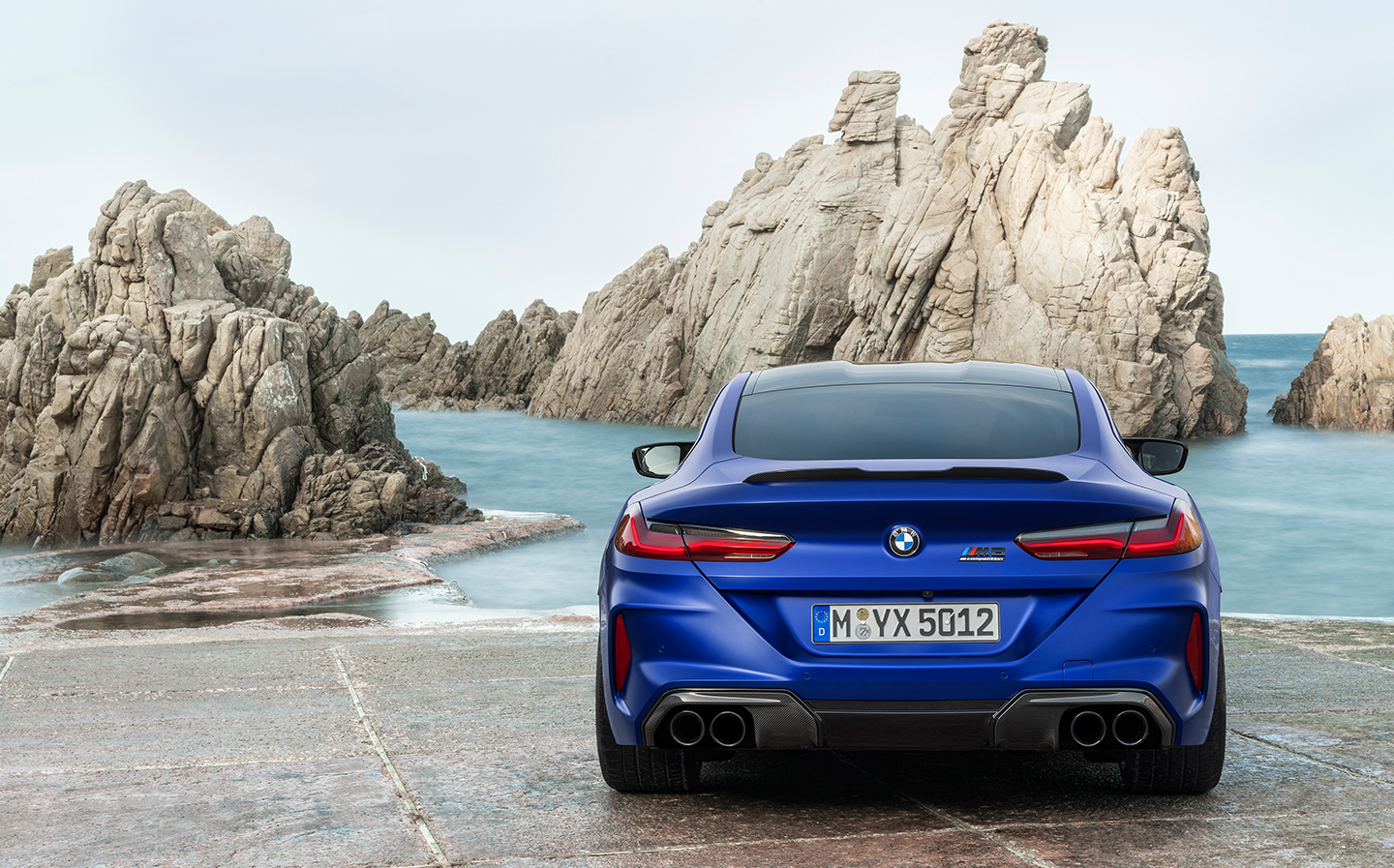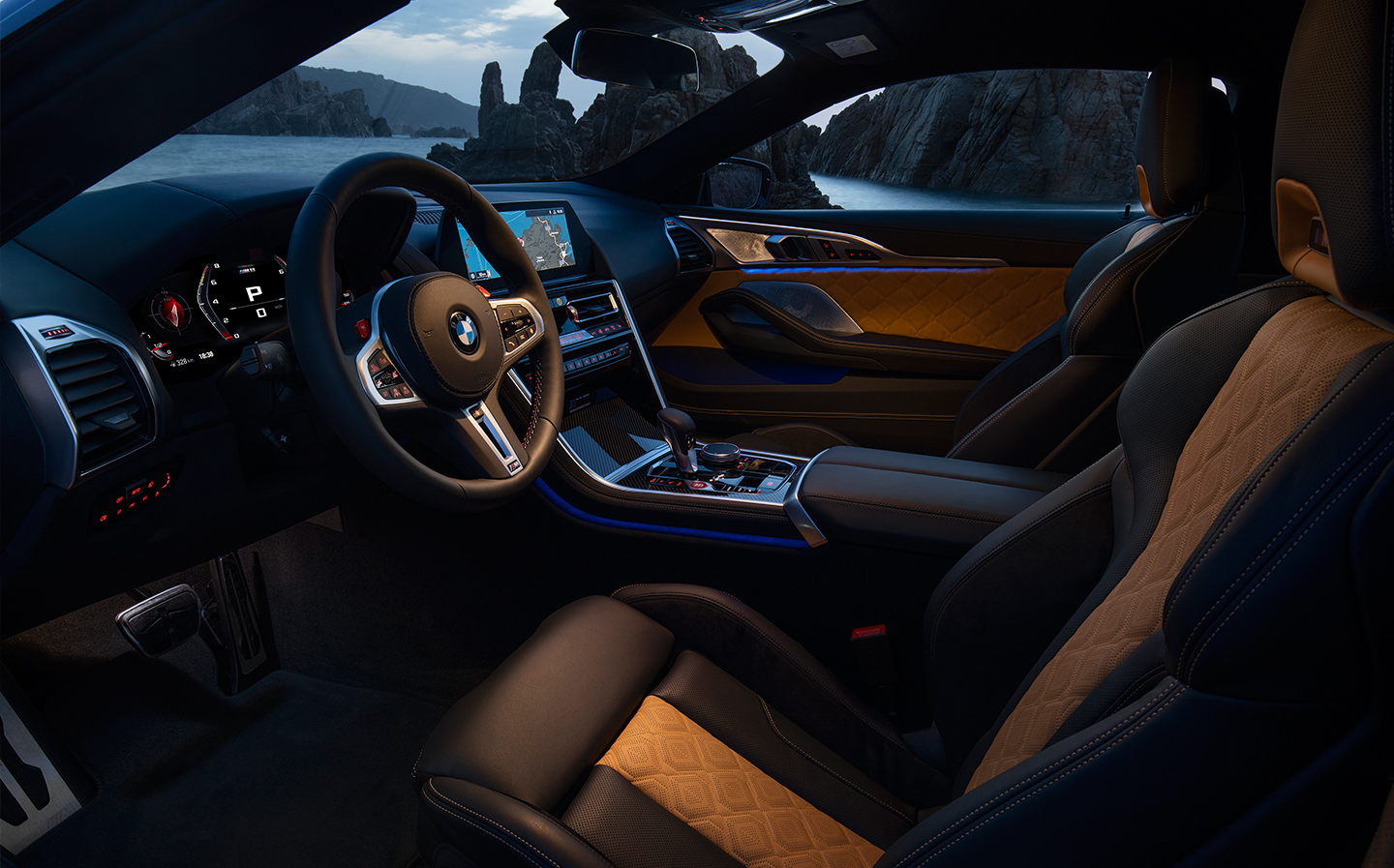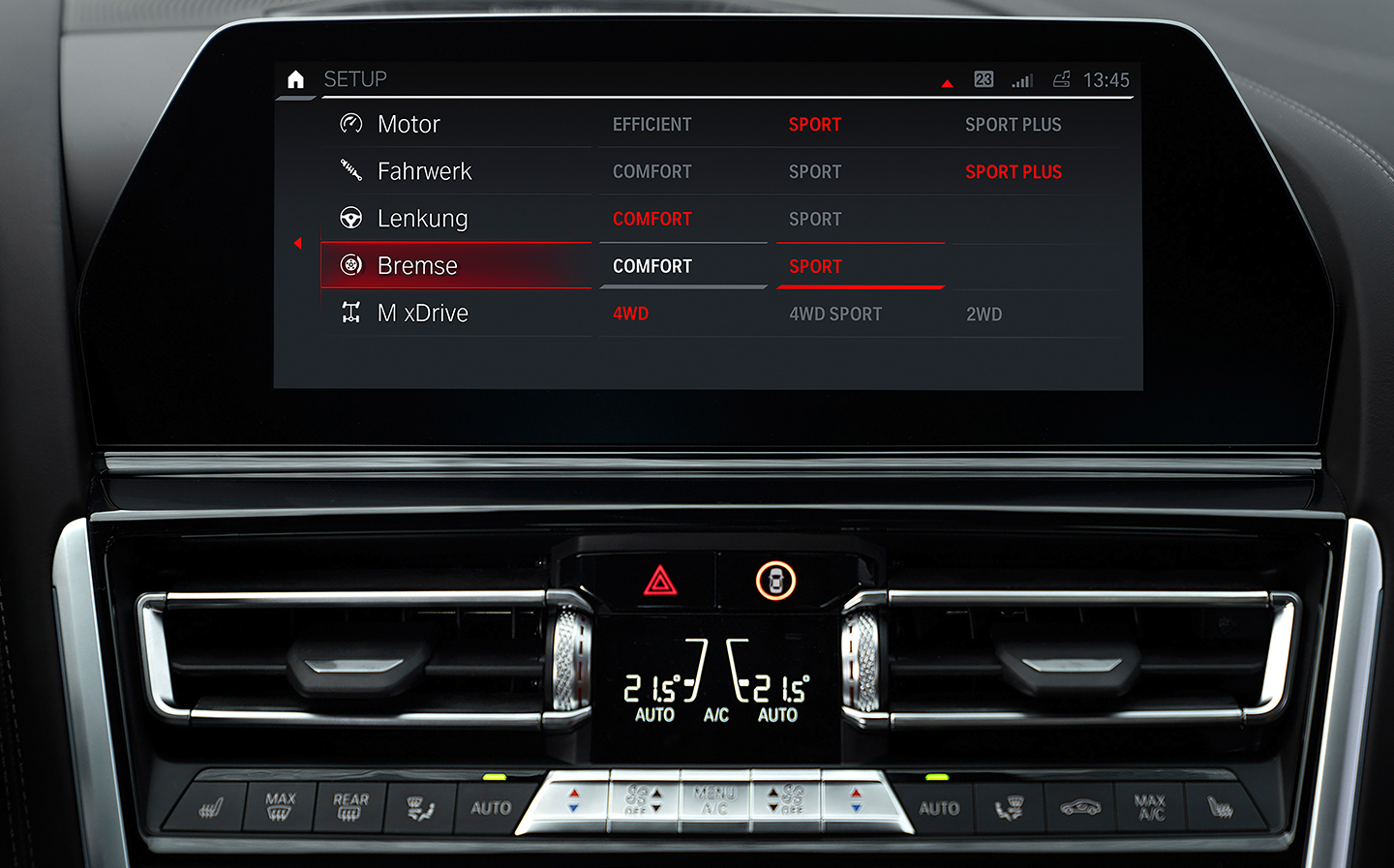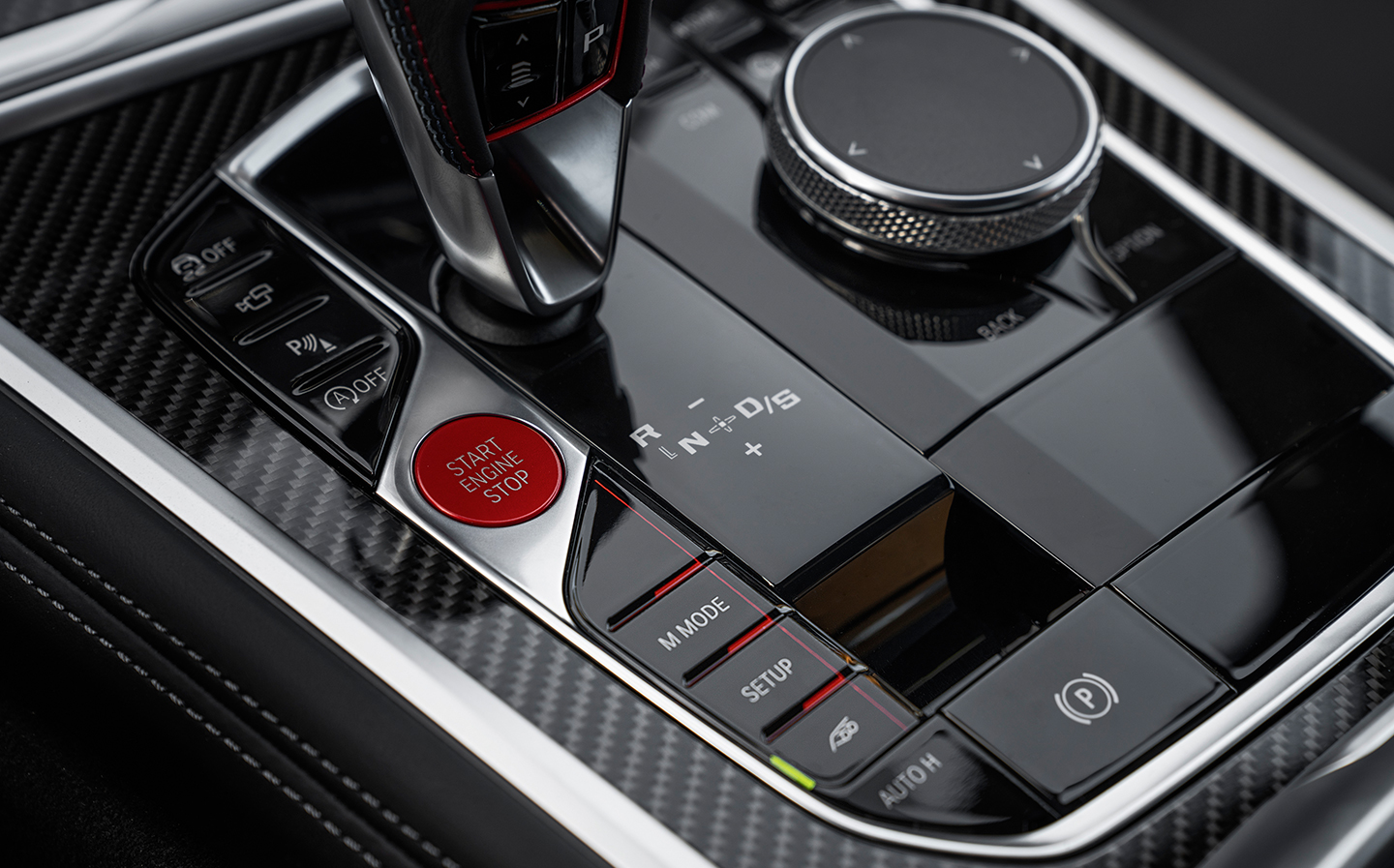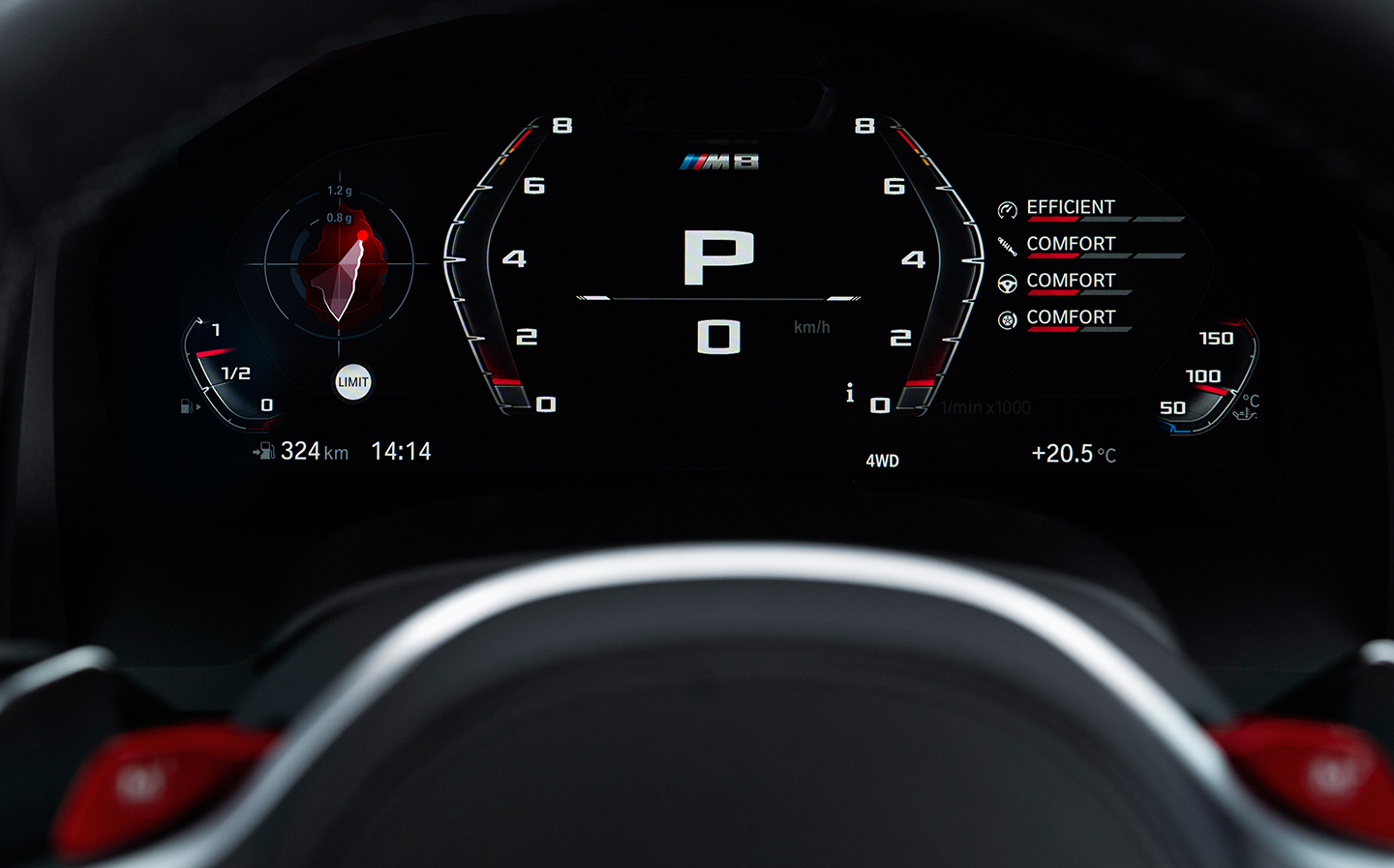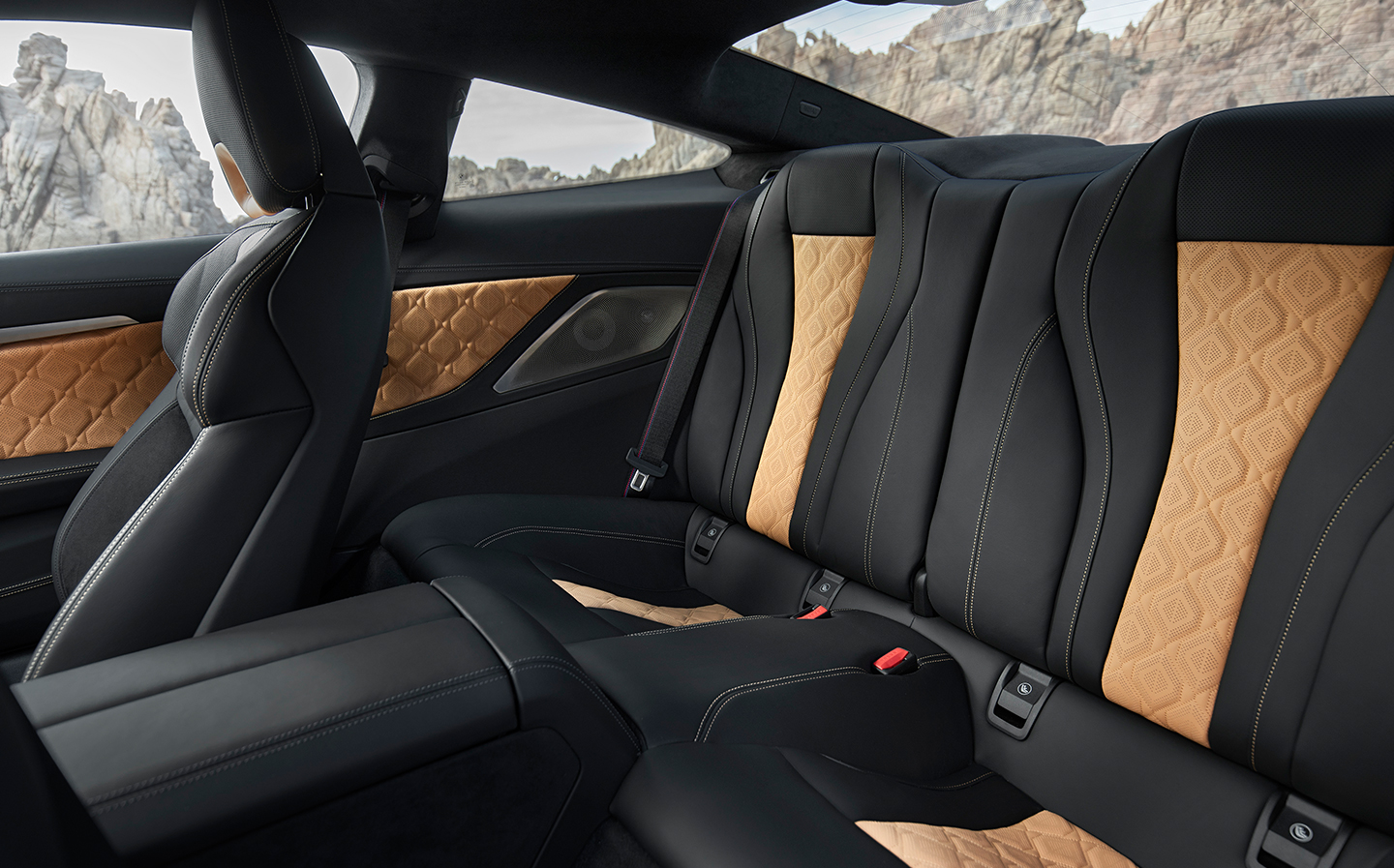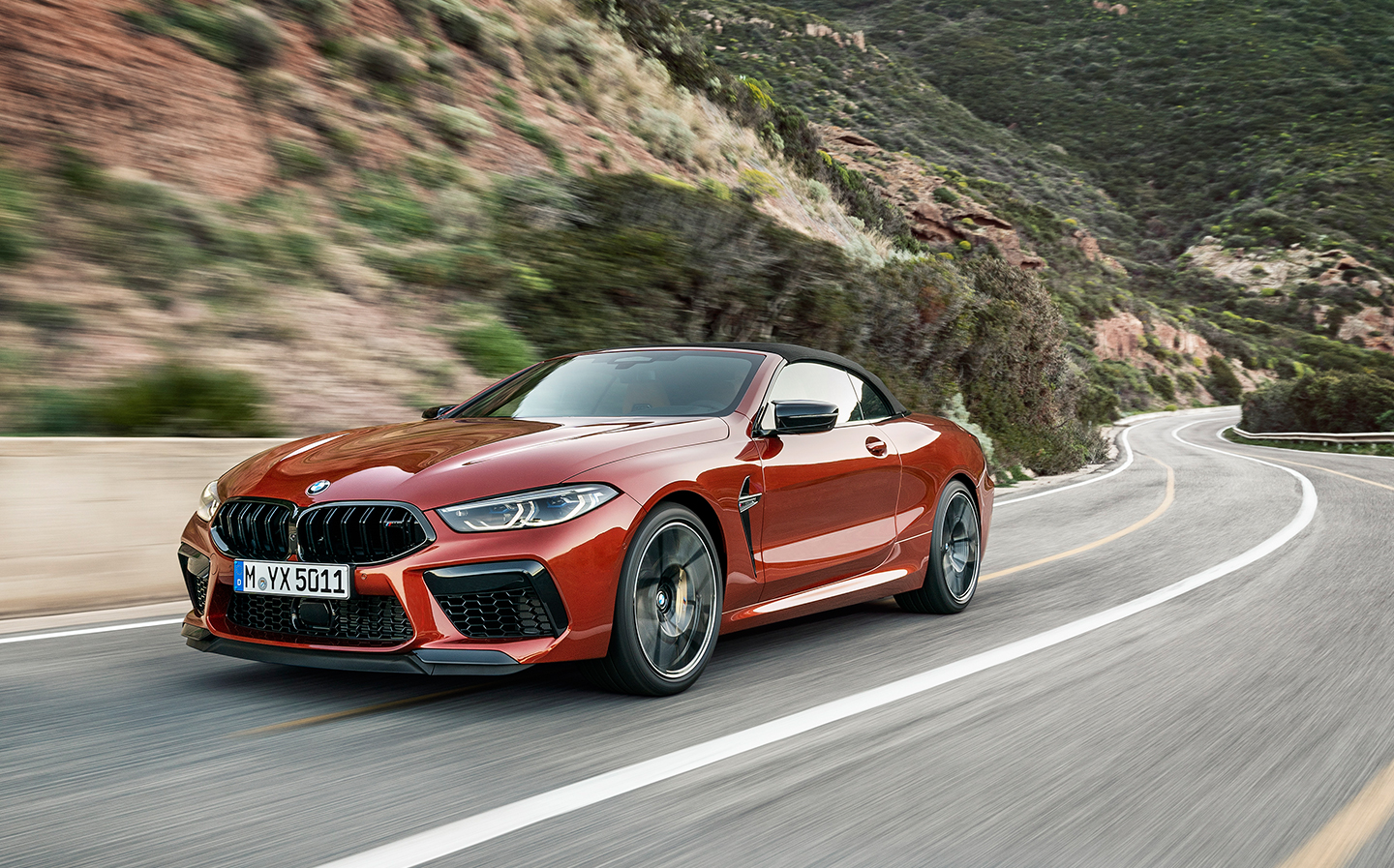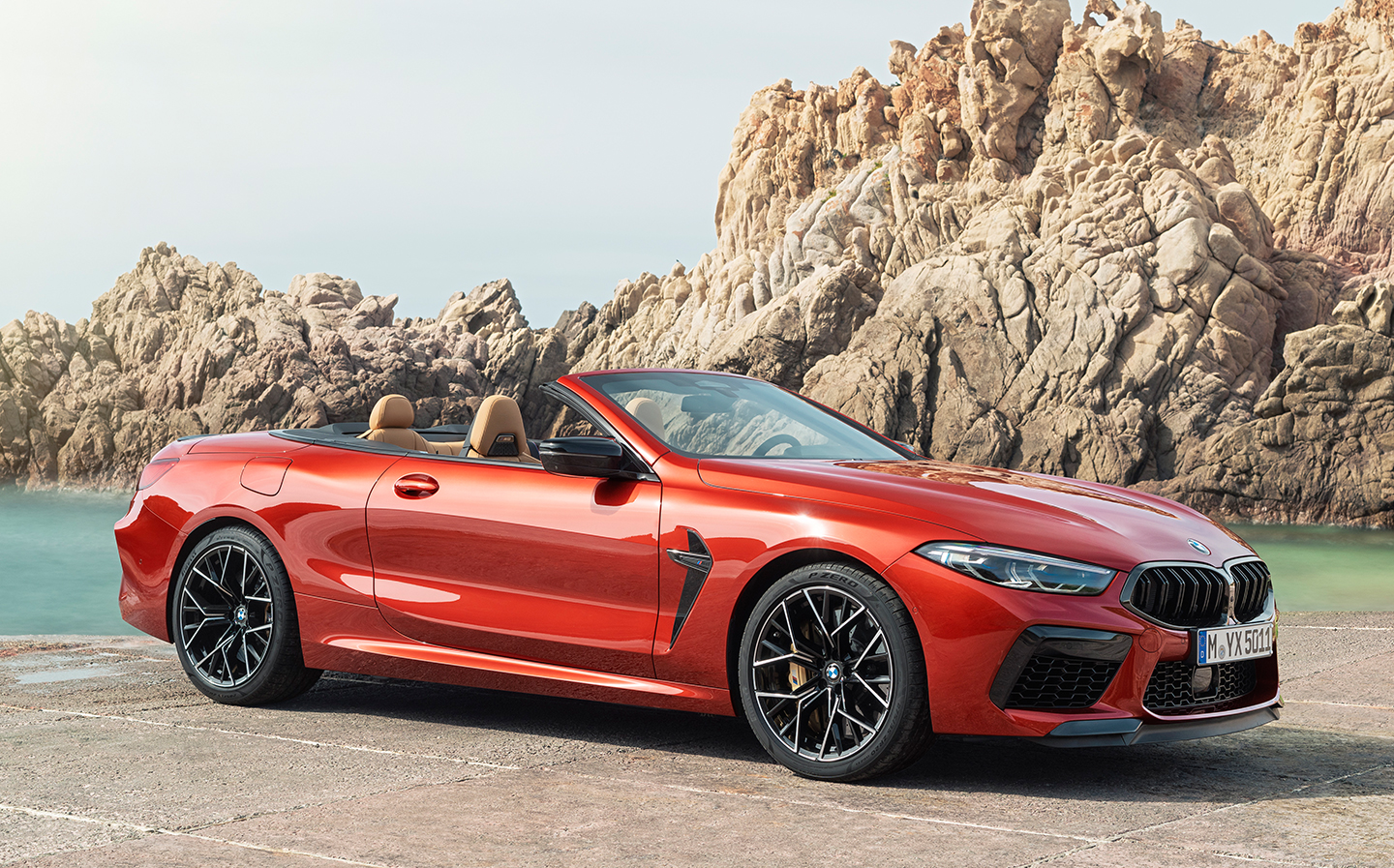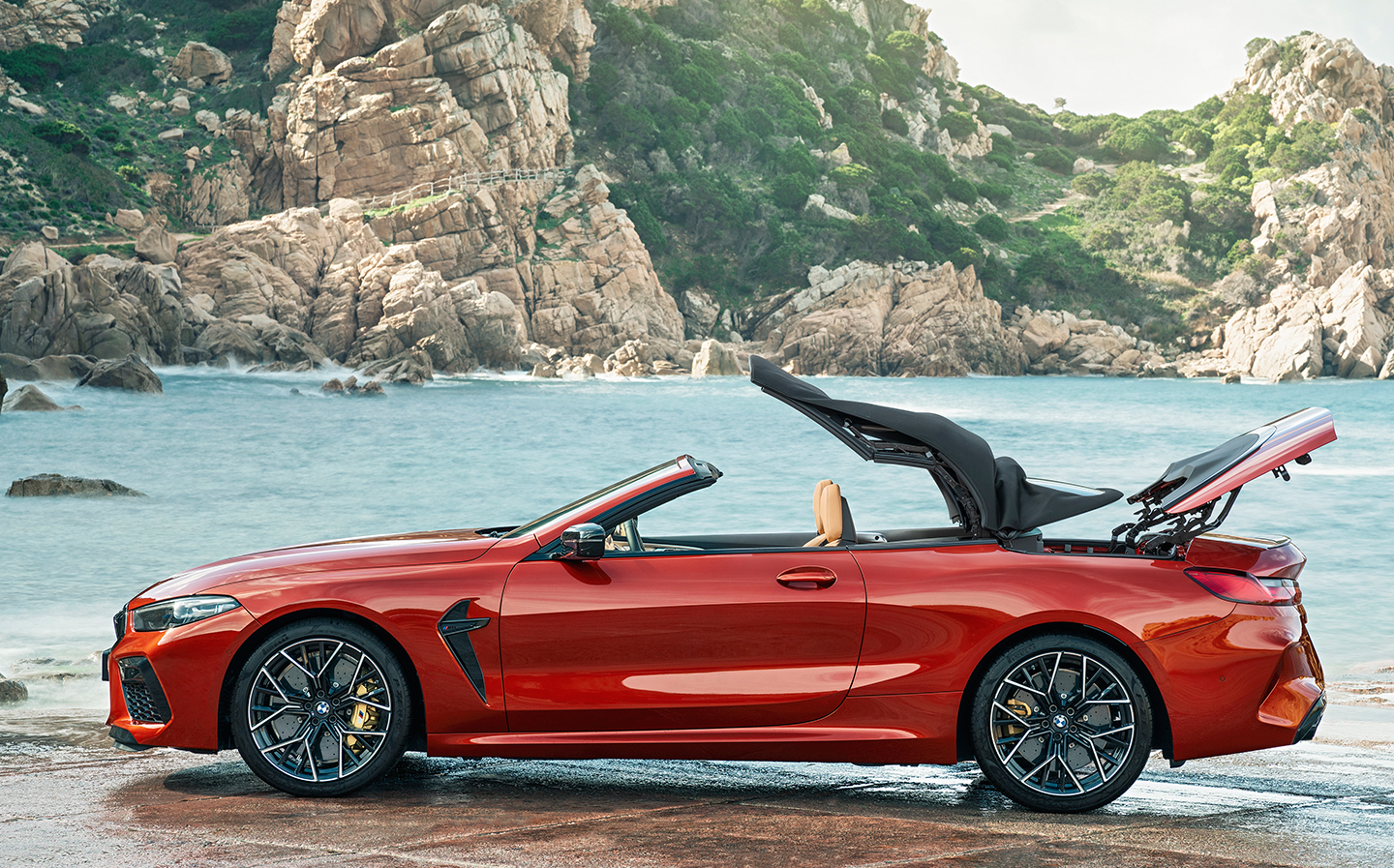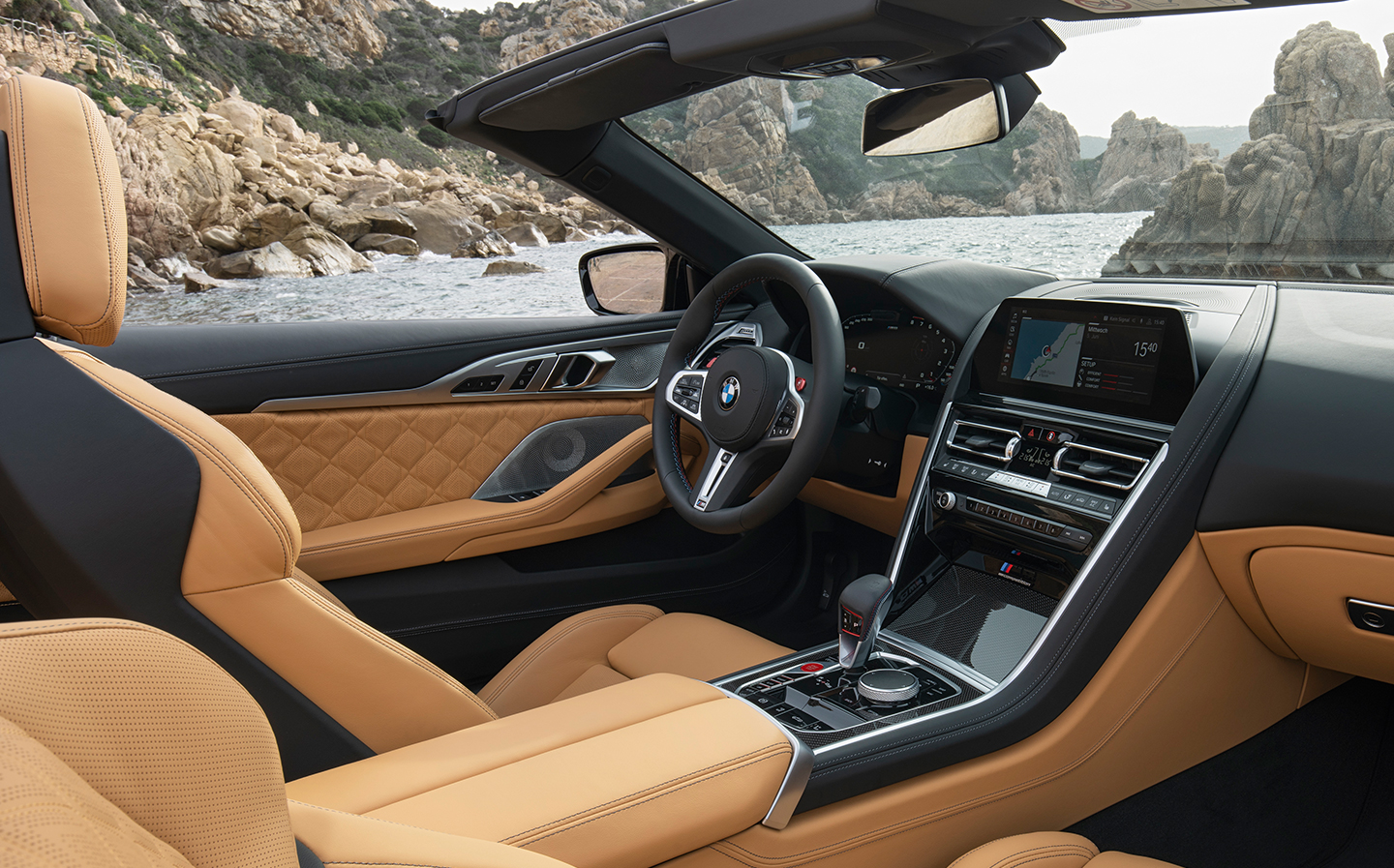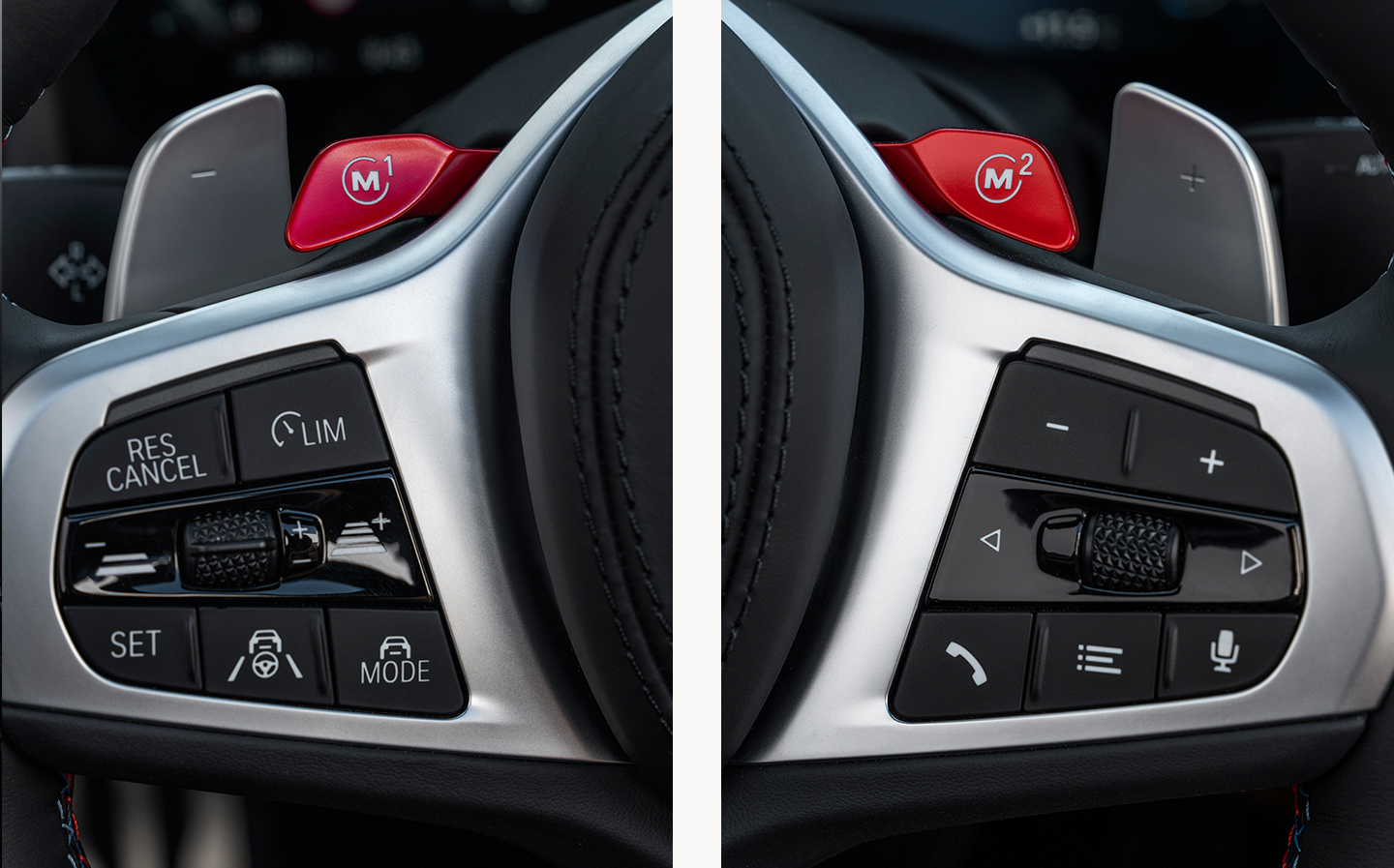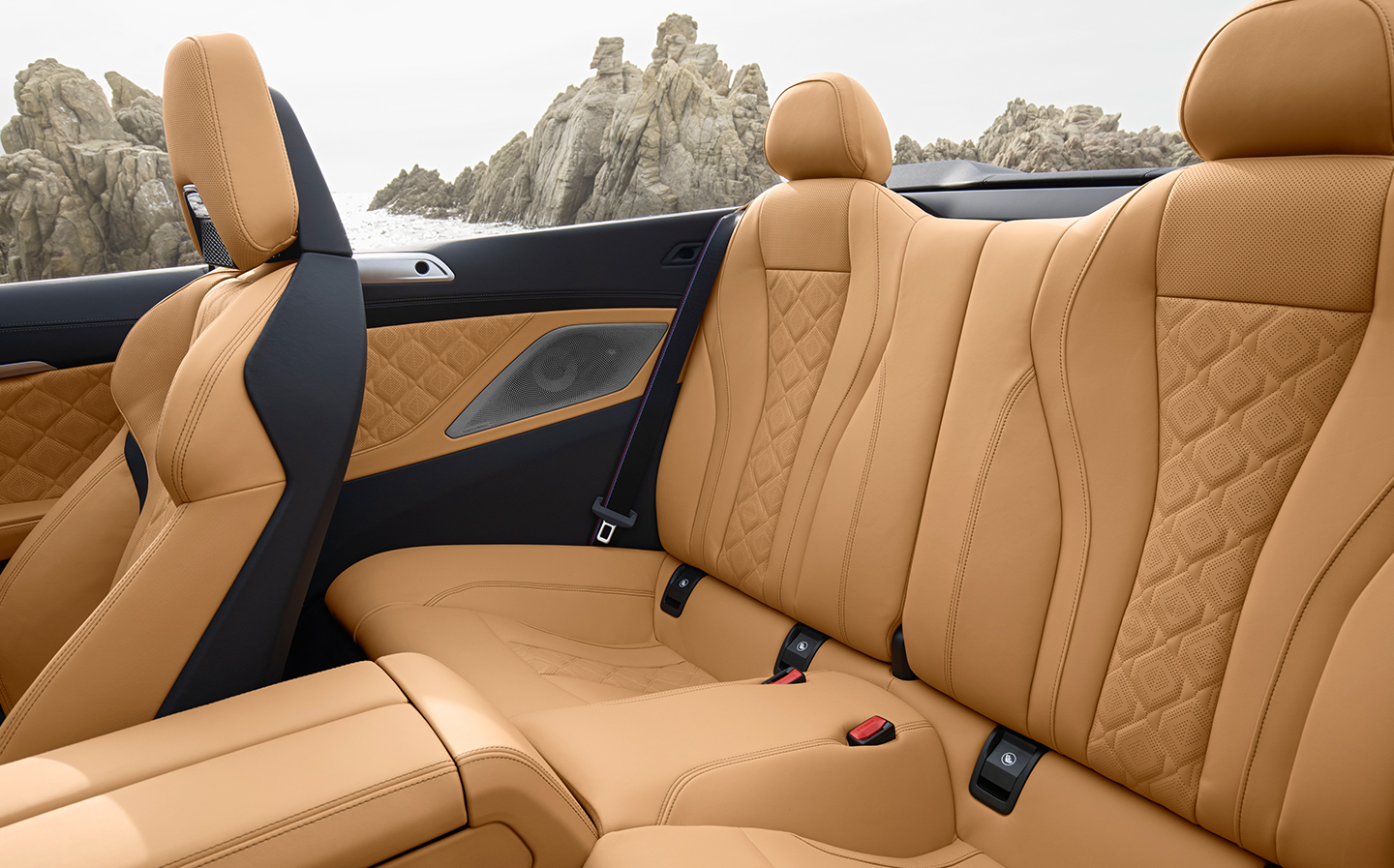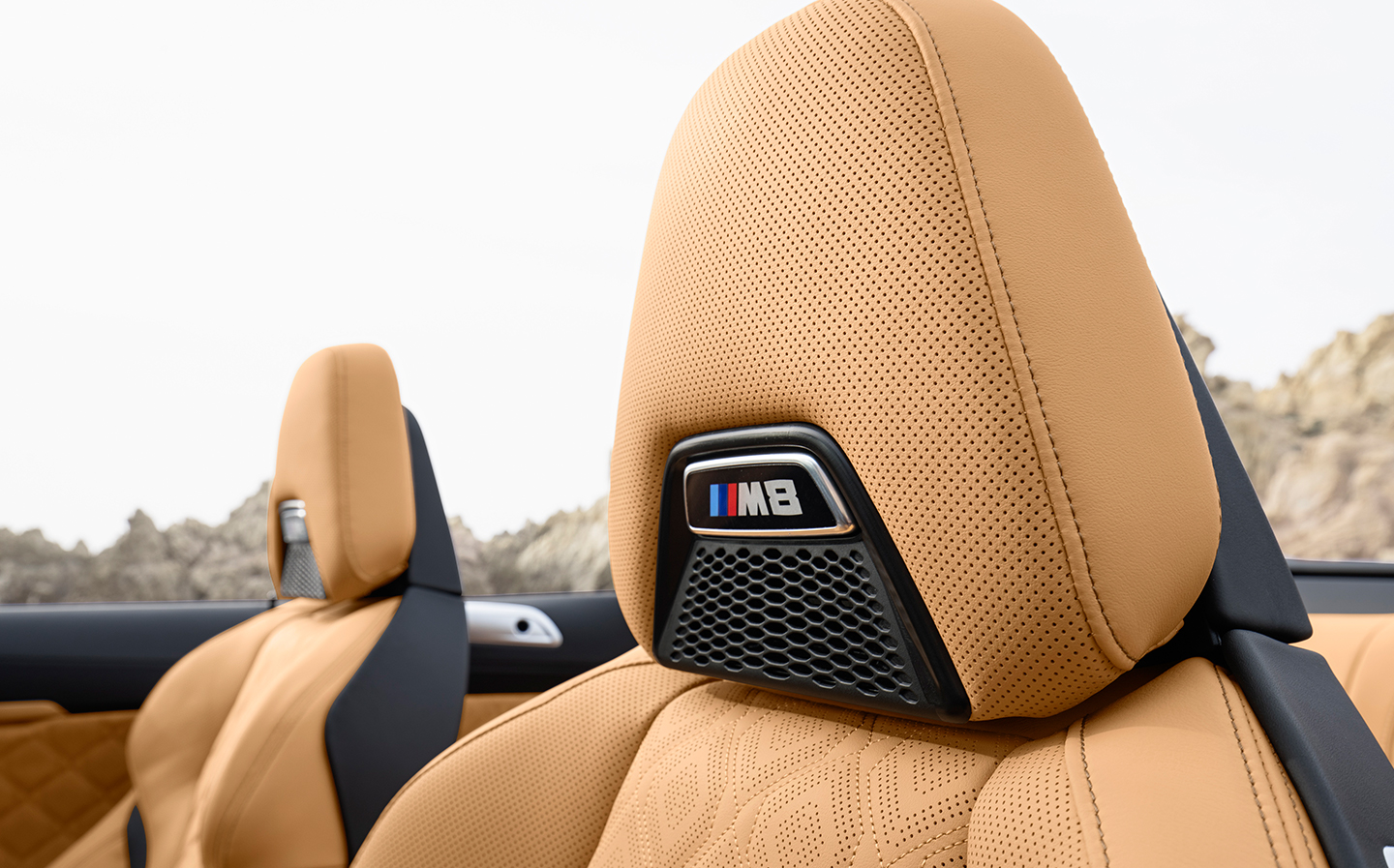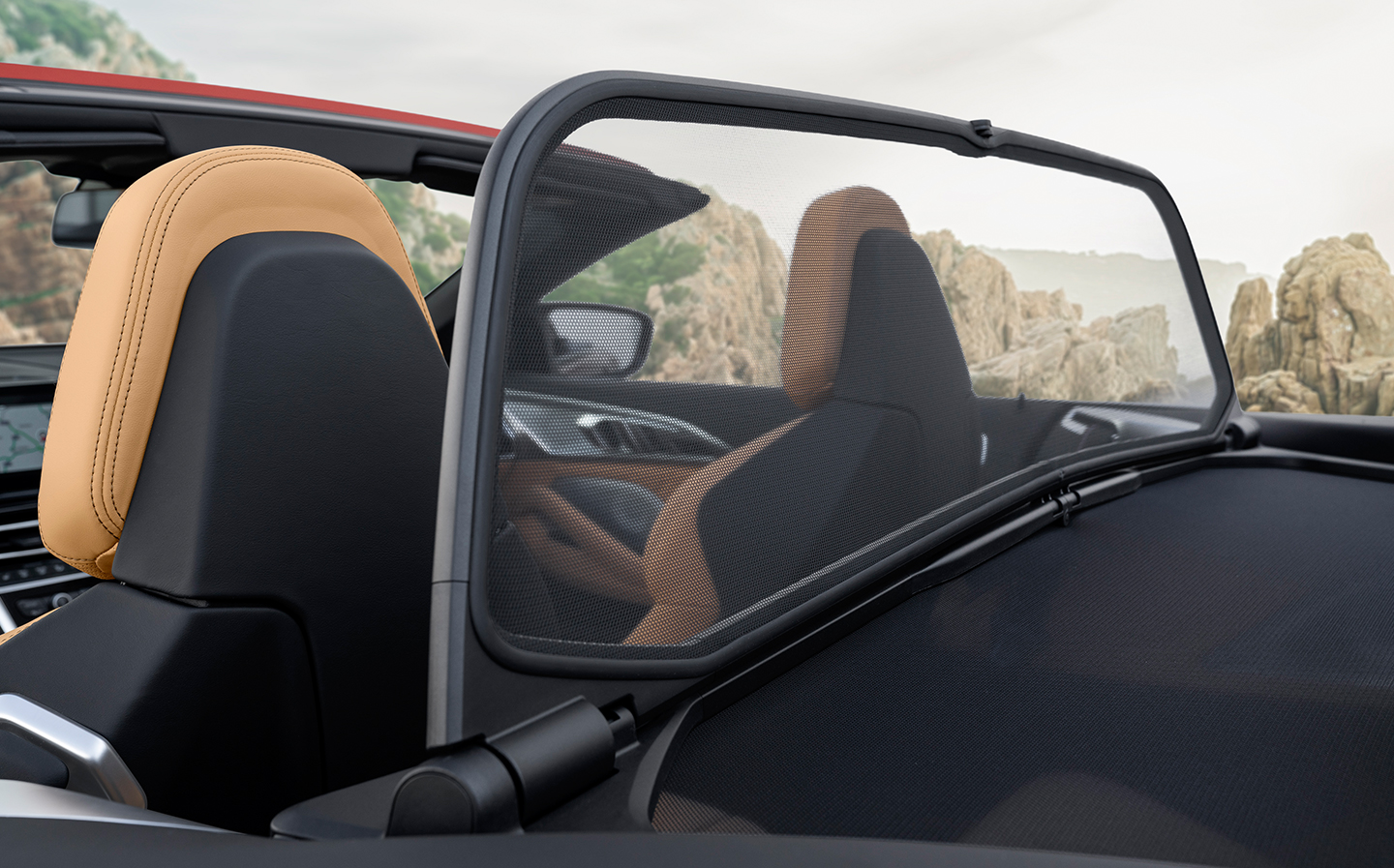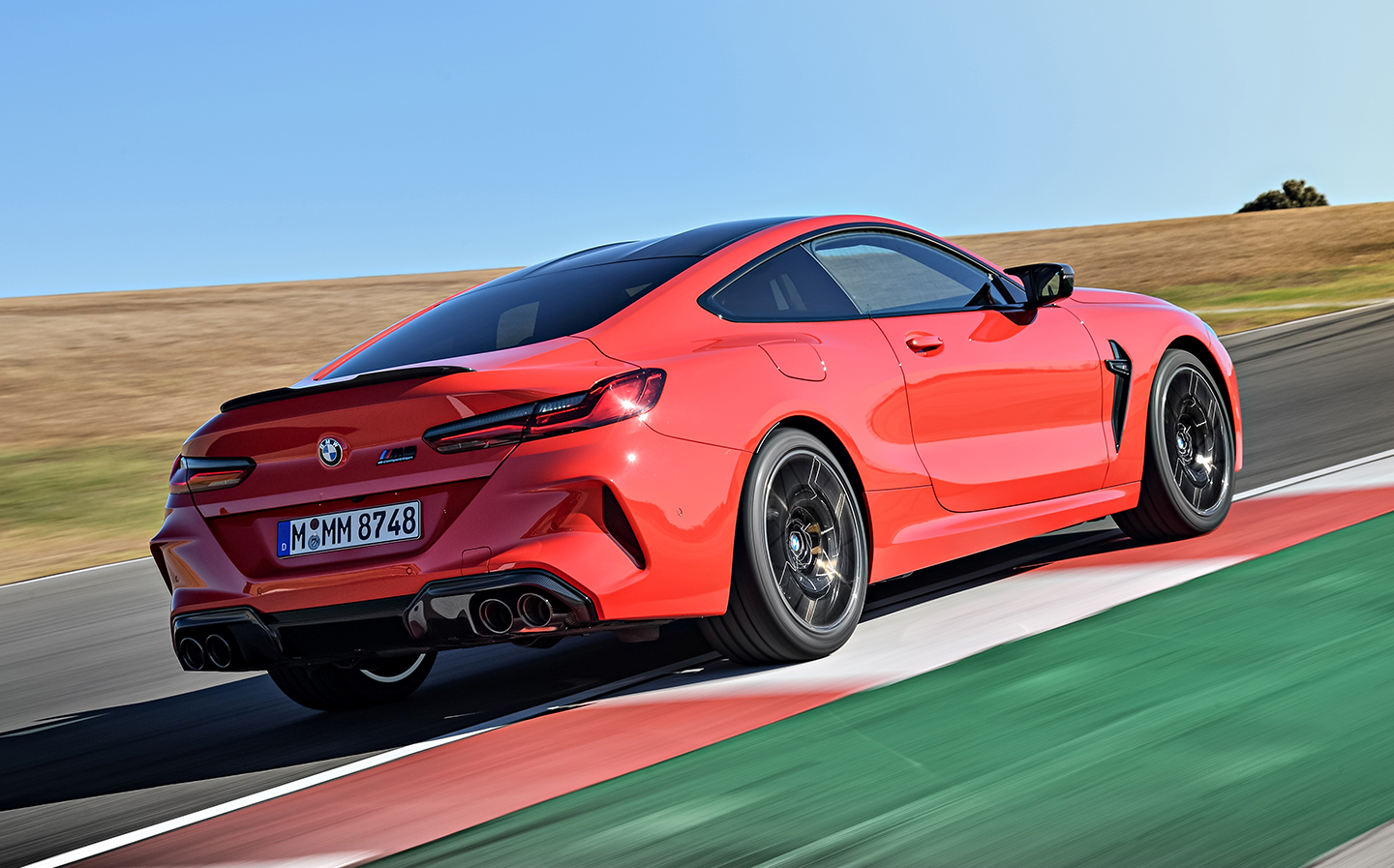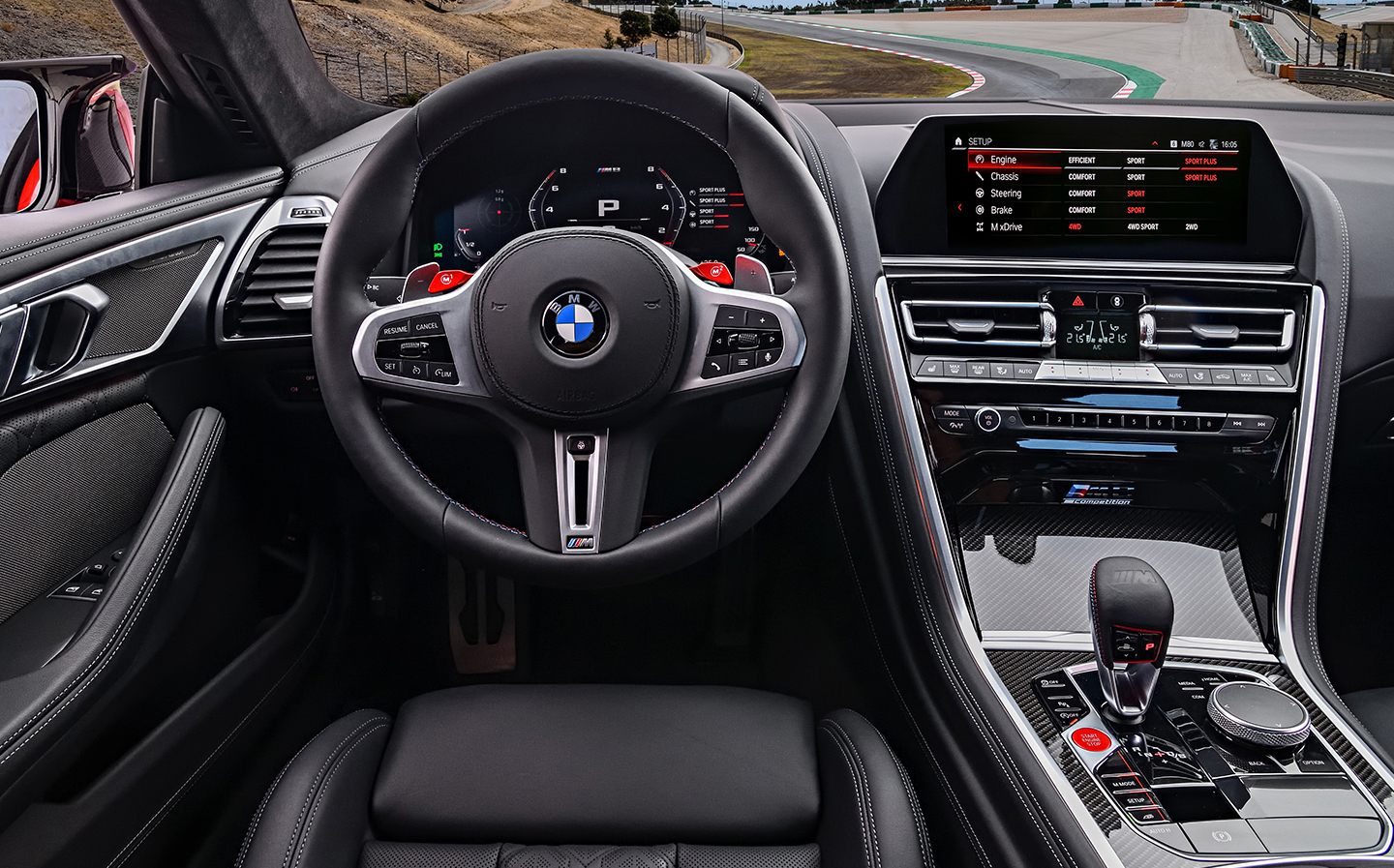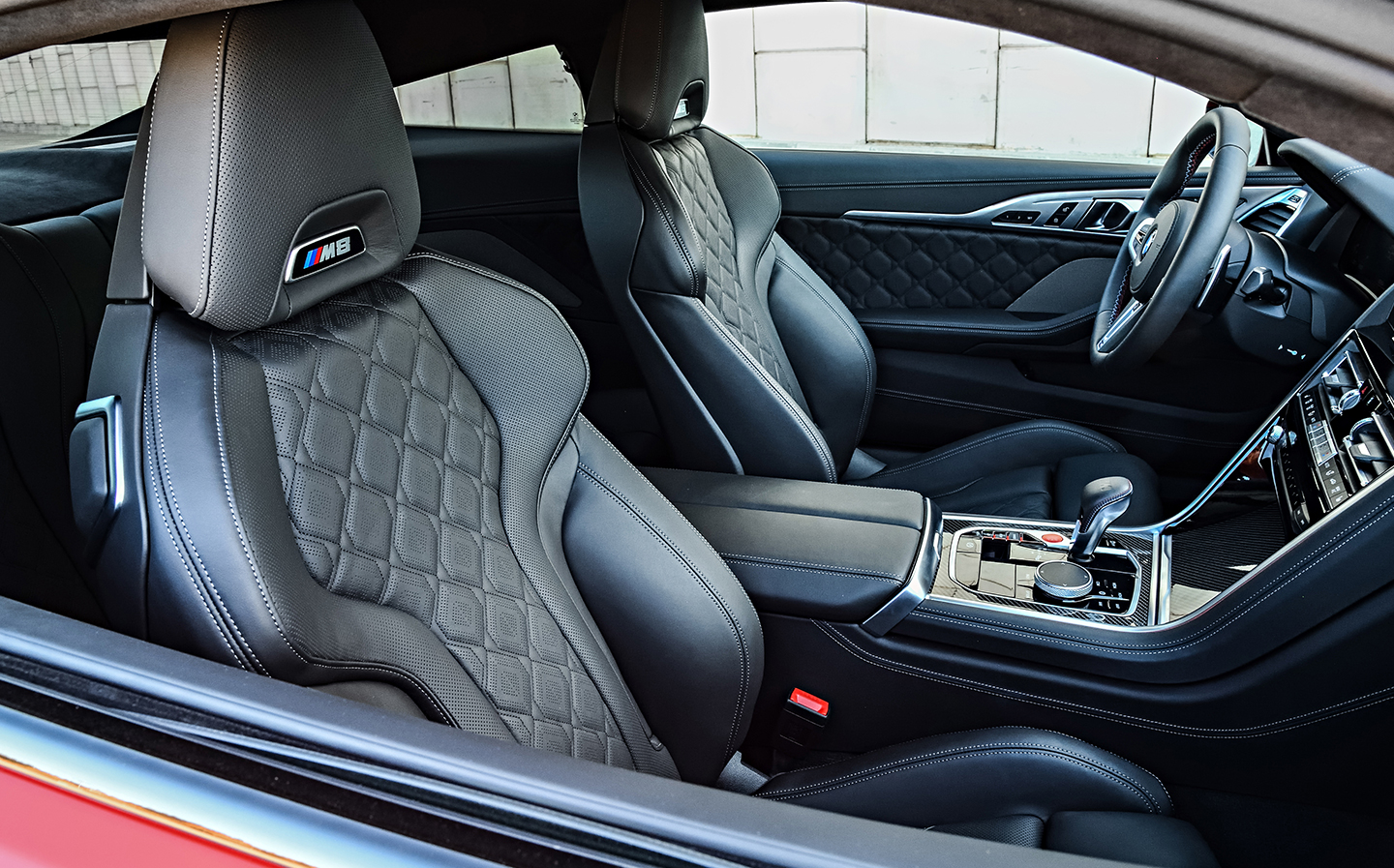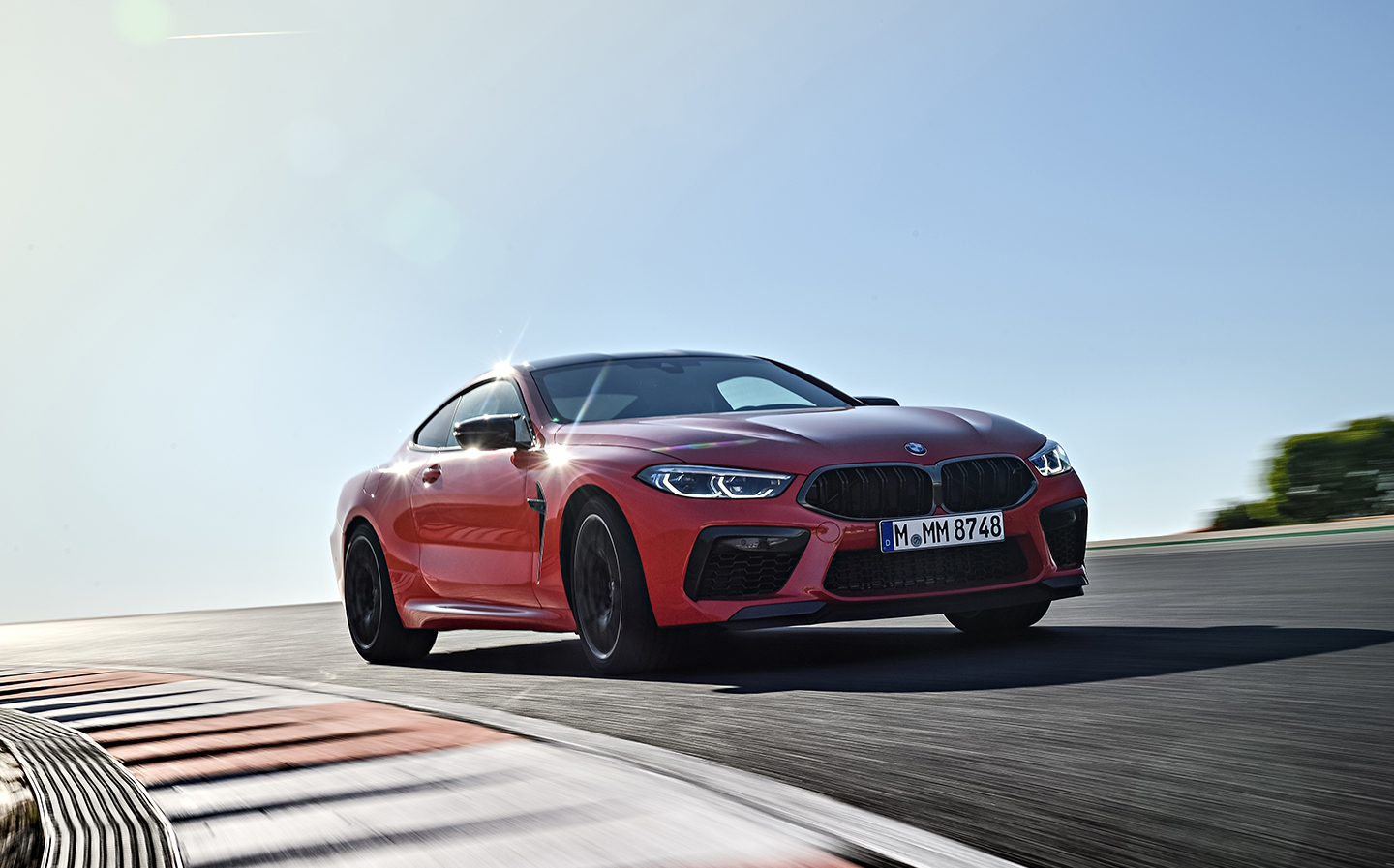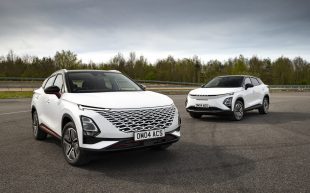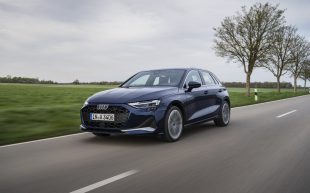2019 BMW M8 Competition coupé and convertible review
OMG, M8: check out BMW's luxury ringmeister
BMW’s M (motorsports) vehicle division might be more than 40 years old but the new M8 – available this year in both coupé and convertible guises, and from next year with extra space for rear passengers in “gran coupé” form – is its “first foray” into luxury motoring.
The 8 Series might be a big, plush cruiser but the M formula is the same as always: more power, tuned suspension, more drama. Perhaps surprisingly, though, even the sportiest M8 Competition derivative (tested here) retains much of the standard 8 Series’ comfort and is a car that can be driven every day.
Marking out the M8 Coupé from the standard 8 Series are its double-bubble carbon fibre roof, black kidney grille, revised lower air intakes on the nose, prominent quad exhausts and rear spoiler at the rear, and exclusive 20in bi-colour forged alloy wheels. An optional M Carbon exterior packages adds some extra carbon fibre touches.
But in truth, the M8 isn’t overly wild-looking – it’s not extreme in the same way as a Lamborghini, for example; a gentleman could pull up to the Ritz in it without looking like someone trying to over-compensate for certain body-related inadequacies, if you catch my drift.
It’s the same story inside – the familiar BMW wheel and centre console, which is angled towards the driver, is not at all ostentatious. It’s slightly underwhelming, in fact, when compared to the equivalent effort from Mercedes (the S 63 Coupé).
The infotainment system is quick to operate and looks good, though navigating the menus can be a little bewildering. Alexa-style voice control makes things easier, and the optional Apple Carplay will suit iPhone users, though those with an Android handset will be disappointed that Android Auto is not supported (as with other BMWs at present).
Space up front is good but the two rear seats are strictly for children. The 420-litre boot is very usable, if not massive, although some space is sacrificed in the convertible version, of course.
What can’t be grumbled about is the quality of the materials, nor the solidity of the build — BMW managing to prove it’s still at the top of its game when it comes to the actual screwing together of components.
The M8 differs from the standard 8 with a couple of M Mode buttons on the steering wheel, which can be programmed to set the car to two different, customised tuning states. Drivers can control the engine responsiveness, stiffness of the dampers, steering feel, brake strength, gearbox speed, stability control systems and front-rear power bias.
In other words, it’s massively adaptable, and a truly flexible machine for all sorts of situations.
Our first experience was in the coupé, on track. BMW had pre-programmed the M1 button to a fairly sporty setting with strong rear wheel bias, and the M2 button to a stiffer, much more focused state of tune, with the electronic stability control systems switched off but a more balanced delivery of power to all four wheels.
This makes describing the feel of the car tricky, as it really depends on the settings, but even in the Sport Plus damper mode the M8’s suspension offers a surprising amount of pliancy, with a bit of lean through corners.
It’s phenomenally quick and composed around a circuit, don’t get me wrong, and rear-wheel steering means changes of direction can be neck-snapping, though hustling its near-two tonnes around the wicked blind crests and undulations of Circuit Algarve near Portimao proved that the M8 is not quite as hard core as we might have expected.
The refinement continues with the peach of a powerplant under the long bonnet. In both M modes, the 4.4-litre twin-turbocharged V8 was set to Sport Plus, unleashing its full 617bhp and 553 lb ft of torque. It’s a mighty motor indeed — the most powerful ever BMW M engine — catapulting us from standstill to 62mph in 3.2 seconds and 124mph in 10.6 seconds, topping out at 189mph, if the optional M Driver package is specified.
The sense of speed is very real indeed, though it doesn’t feel as brutal as the V12 sledgehammers fitted to the Aston Martin DB11 AMR or DBS (which, admittedly, has an extra 100bhp). Max torque comes in at 1,800rpm on both the DBS and the M8, but the BMW’s powerplant offers grunt over a wider band, all the way up to 5,800 rpm. Maximum power arrives at around that point and the red line is at 7,200rpm. This makes it an engine that likes to be revved, giving it appeal on track, but also one that can handle low effort day-to-day duties with ease.
This makes the M8 an absolute pleasure on the road, particularly if you get behind the wheel of the convertible, as we did. The convertible is an extra 125kg heavier than the coupé, and you can feel that when threading the car along twisty roads, though the extra weight makes the ride even more composed over bumps and imperfections.
It’s a world apart from the coupé-only McLaren GT, which offers slightly less power but is nearly half a tonne lighter, making it feel much more dainty through corners and a lot sprightlier. But the BMW has much more traditional GT feel and probably a more comfortable ride over large distances.
The BMW’s front and rear grip is still immense and applying throttle mid-corner pulls the nose around sharp turns with remarkable eagerness, lending the M8 an agility that belies the car’s size. Braking comes from 395mm steel discs with six-piston callipers at the front and 380mm discs at the rear, with a 400mm/380mm carbon ceramic option should you demand extra stopping power, though to be honest the standard kit is perfectly effective.
With the top down, progress is glorious, though it lacks the rapturous soundtrack of some other convertible GTs, and the M8 Competition doesn’t feel quite as special as the Aston Martin, even though you know the German car’s clever engineering and active technology is more sophisticated. What’s more, you could drive the M8 to Champagne and fill your boot with fine bubbly, and you’d still be tens of thousand of pounds better off than if you’d bought the Aston.
So it’s not as quick as the McLaren GT, not as special as the Aston Martin DB11 AMR or DBS Superleggera, and not as plush as a Mercedes-AMG S 63. It’s not nearly as luxurious as the Bentley Continental GT V8, either. But as a pleasurable cruiser packing serious firepower (just check out the 0-62mph times below), the BMW M8 Competition is a glorious all-rounder. Best enjoyed as such in convertible form, we’d argue, even though it means splashing out an extra £7,000.
BMW M8 vs rivals
| BMW M8 Competition Coupé | Mercedes-AMG S 63 | Aston Martin DB11 AMR | McLaren GT | |
| Price | £123,435 | £129,410 | £174,995 | £163,000 |
| Power | 617bhp | 604bhp | 630bhp | 612bhp |
| Torque | 553 lb ft | 663 lb ft | 516 lb ft | 465 lb ft |
| Powered wheels | AWD | AWD | Rear | Rear |
| Kerb weight | 1,960kg | 2,065kg | 1,870kg | 1,530kg |
| 0-62mph | 3.2sec | 4.2sec | 3.7sec | 3.2sec |
| Top speed | 189mph¹ | 186mph² | 208mph | 203mph |
¹ With optional M Driver’s Package (£2,095); otherwise limited to 155mph
² With optional AMG Driver’s Package (£2,755); otherwise limited to 155mph


